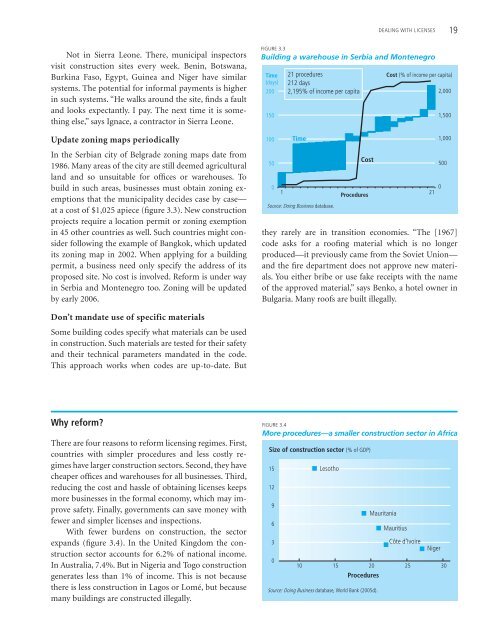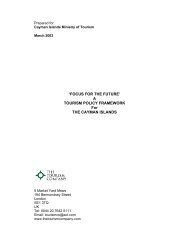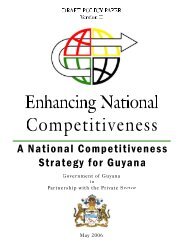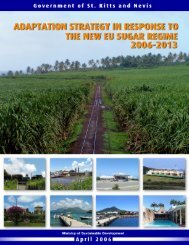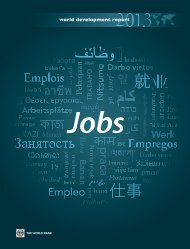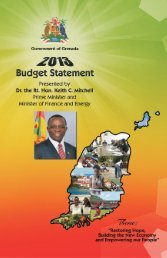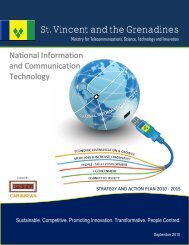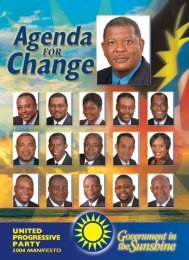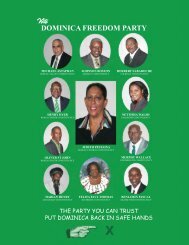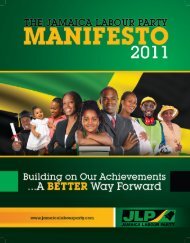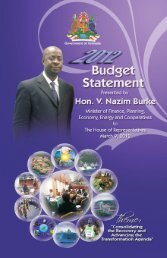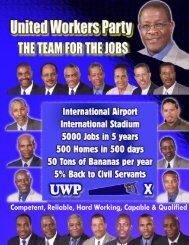Creating
Doing Business in 2006 -- Creating Jobs - Caribbean Elections
Doing Business in 2006 -- Creating Jobs - Caribbean Elections
You also want an ePaper? Increase the reach of your titles
YUMPU automatically turns print PDFs into web optimized ePapers that Google loves.
DEALING WITH LICENSES 19<br />
Not in Sierra Leone. There, municipal inspectors<br />
visit construction sites every week. Benin, Botswana,<br />
Burkina Faso, Egypt, Guinea and Niger have similar<br />
systems. The potential for informal payments is higher<br />
in such systems. “He walks around the site, finds a fault<br />
and looks expectantly. I pay. The next time it is something<br />
else,” says Ignace, a contractor in Sierra Leone.<br />
<br />
<br />
<br />
<br />
<br />
<br />
<br />
<br />
<br />
<br />
<br />
<br />
Update zoning maps periodically<br />
<br />
<br />
<br />
In the Serbian city of Belgrade zoning maps date from<br />
1986. Many areas of the city are still deemed agricultural<br />
land and so unsuitable for offices or warehouses. To<br />
build in such areas, businesses must obtain zoning exemptions<br />
that the municipality decides case by case—<br />
at a cost of $1,025 apiece (figure 3.3). New construction<br />
projects require a location permit or zoning exemption<br />
in 45 other countries as well. Such countries might consider<br />
following the example of Bangkok, which updated<br />
its zoning map in 2002. When applying for a building<br />
permit, a business need only specify the address of its<br />
proposed site. No cost is involved. Reform is under way<br />
in Serbia and Montenegro too. Zoning will be updated<br />
by early 2006.<br />
<br />
<br />
<br />
<br />
<br />
<br />
they rarely are in transition economies. “The [1967]<br />
code asks for a roofing material which is no longer<br />
produced—it previously came from the Soviet Union—<br />
and the fire department does not approve new materials.<br />
You either bribe or use fake receipts with the name<br />
of the approved material,” says Benko, a hotel owner in<br />
Bulgaria. Many roofs are built illegally.<br />
<br />
<br />
<br />
Don’t mandate use of specific materials<br />
Some building codes specify what materials can be used<br />
in construction. Such materials are tested for their safety<br />
and their technical parameters mandated in the code.<br />
This approach works when codes are up-to-date. But<br />
Why reform?<br />
There are four reasons to reform licensing regimes. First,<br />
countries with simpler procedures and less costly regimes<br />
have larger construction sectors. Second, they have<br />
cheaper offices and warehouses for all businesses. Third,<br />
reducing the cost and hassle of obtaining licenses keeps<br />
more businesses in the formal economy, which may improve<br />
safety. Finally, governments can save money with<br />
fewer and simpler licenses and inspections.<br />
With fewer burdens on construction, the sector<br />
expands (figure 3.4). In the United Kingdom the construction<br />
sector accounts for 6.2% of national income.<br />
In Australia, 7.4%. But in Nigeria and Togo construction<br />
generates less than 1% of income. This is not because<br />
there is less construction in Lagos or Lomé, but because<br />
many buildings are constructed illegally.


